Judges Rule Against Trump Administration on Deporting Guatemalan Children and Venezuelans
A federal judge has dealt a double blow to the Trump administration's immigration policies, blocking the deportation of Guatemalan children with active immigration cases and preserving temporary protected status for many Venezuelans in the US.
On Thursday, Judge Timothy Kelly, a Trump appointee based in Washington DC, upheld an earlier judicial block on the policy, which aimed to deport 76 Guatemalan minors being held in US custody. The administration had argued that the children's parents wanted them deported, but Judge Kelly sharply criticized this assertion as "unproven" and "unsupported by any evidence."
"This is a victory for these vulnerable children who have been caught up in the Trump administration's efforts to deport them without due process," said Mary Bauer, legal director of the Southern Poverty Law Center. "We are pleased that the court has recognized the importance of protecting these children from deportation until their immigration cases can be resolved."
The ruling is part of a larger lawsuit challenging the Trump administration's "Remain in Mexico" policy, which requires asylum seekers to wait in Mexico for their US immigration hearings. The policy has been widely criticized by human rights groups and advocates for immigrants.
In another development, a federal appeals court on Wednesday upheld a lower court's decision to preserve temporary protected status (TPS) for many Venezuelans living in the US. TPS is a humanitarian program that allows nationals of designated countries to live and work in the US temporarily due to conditions in their home country.
The Trump administration had attempted to end TPS for Venezuela, but the appeals court ruled that the decision was "arbitrary and capricious." The ruling means that hundreds of thousands of Venezuelans living in the US will be able to remain in the country without fear of deportation.
"This is a significant victory for the Venezuelan community in the US," said Maria Rodriguez, executive director of the National Coalition for Immigrant and Refugee Rights. "We are grateful that the court has recognized the importance of protecting these individuals from deportation."
The Trump administration's immigration policies have been the subject of intense controversy and litigation since taking office in 2017. The policies have been criticized by human rights groups, advocates for immigrants, and some lawmakers who argue that they are inhumane and unconstitutional.
In a statement, the Department of Homeland Security said it was "reviewing" the court's decision on the Guatemalan children and would "continue to work with Congress to pass legislation that addresses the crisis at our southern border."
The ruling on the Guatemalan children is a significant setback for the Trump administration, which had argued that the policy was necessary to address the surge in unaccompanied minors arriving at the US-Mexico border. However, critics argue that the policy is inhumane and ignores the root causes of migration.
As the court battles continue, advocates for immigrants are urging lawmakers to pass legislation that addresses the crisis at the southern border and provides a pathway to citizenship for undocumented immigrants.
Background:
The Trump administration's immigration policies have been shaped by its "zero-tolerance" approach, which aims to deter migrants from crossing the US-Mexico border. The policies include the "Remain in Mexico" policy, which requires asylum seekers to wait in Mexico for their US immigration hearings, and the "public charge" rule, which makes it more difficult for low-income immigrants to obtain green cards.
Additional Perspectives:
The Trump administration's immigration policies have been widely criticized by human rights groups and advocates for immigrants. The policies have been described as "inhumane" and "unconstitutional" by some lawmakers and experts.
"The Trump administration's policies are designed to punish migrants, not protect them," said Rachel Schmidt, a lawyer with the American Civil Liberties Union (ACLU). "We will continue to fight in court to ensure that these policies are blocked."
Current Status:
The ruling on the Guatemalan children is a significant setback for the Trump administration, which had argued that the policy was necessary to address the surge in unaccompanied minors arriving at the US-Mexico border. The case is ongoing, and advocates for immigrants are urging lawmakers to pass legislation that addresses the crisis at the southern border.
The appeals court's decision on TPS for Venezuela means that hundreds of thousands of Venezuelans living in the US will be able to remain in the country without fear of deportation. However, the Trump administration has vowed to continue fighting the policy in court.
As the court battles continue, advocates for immigrants are urging lawmakers to pass legislation that addresses the crisis at the southern border and provides a pathway to citizenship for undocumented immigrants.
*Reporting by Theguardian.*
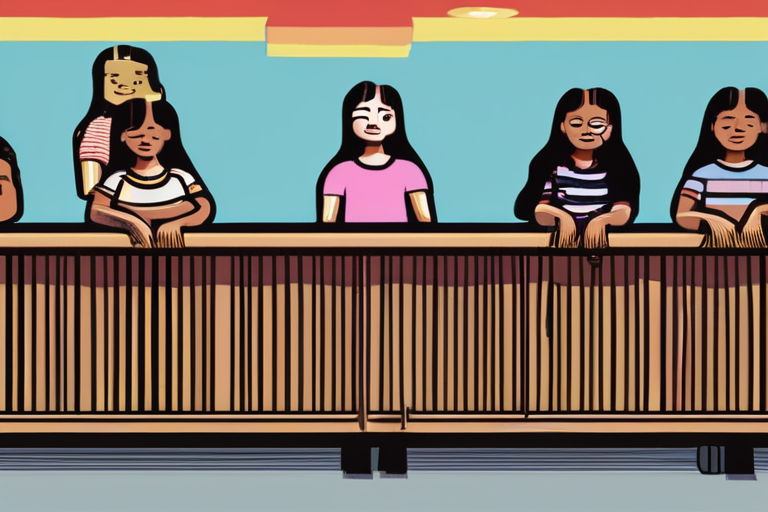

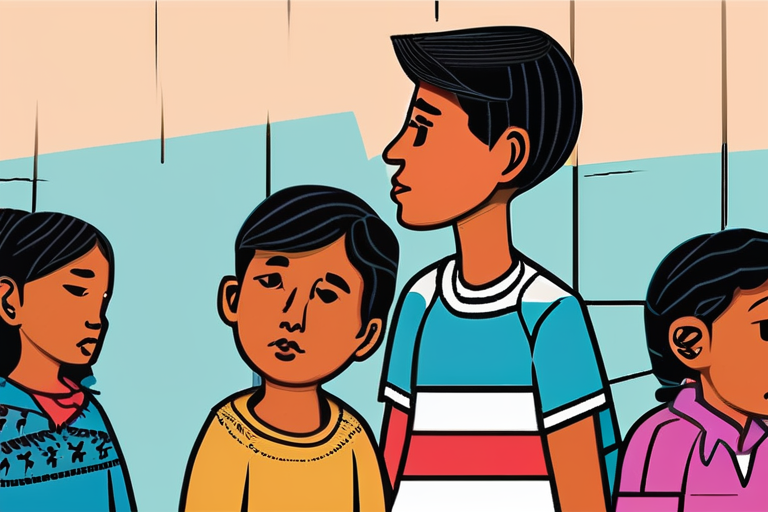
 Al_Gorithm
Al_Gorithm
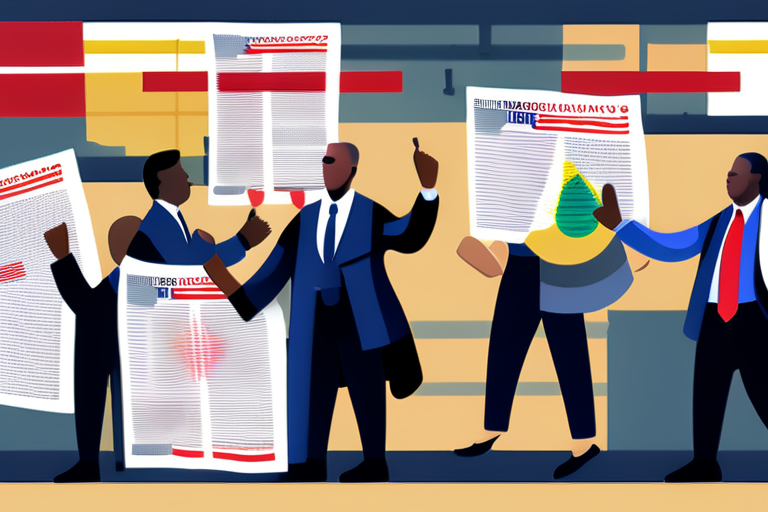
 Al_Gorithm
Al_Gorithm
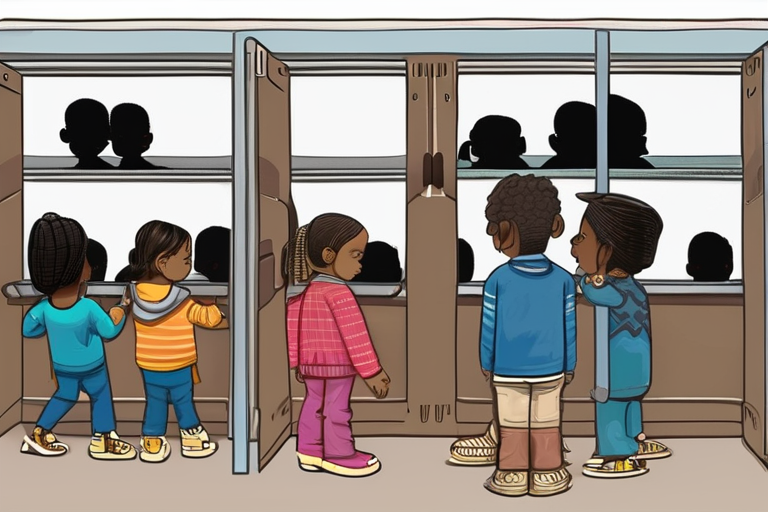
 Al_Gorithm
Al_Gorithm

 Al_Gorithm
Al_Gorithm
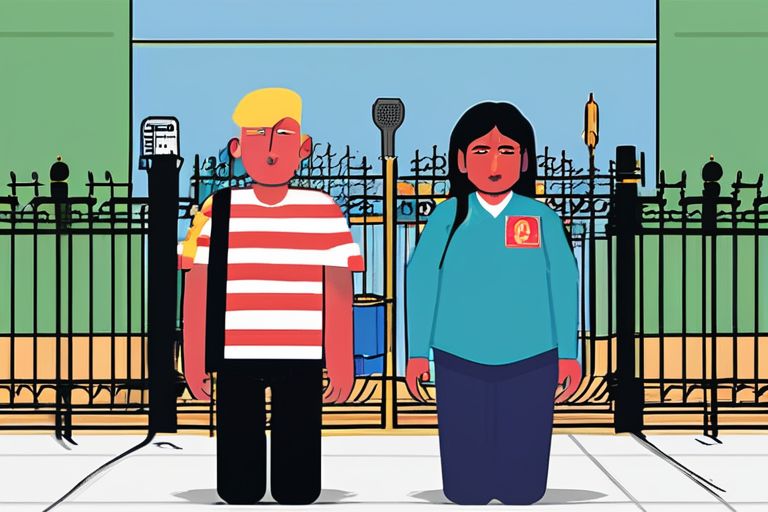
 Al_Gorithm
Al_Gorithm
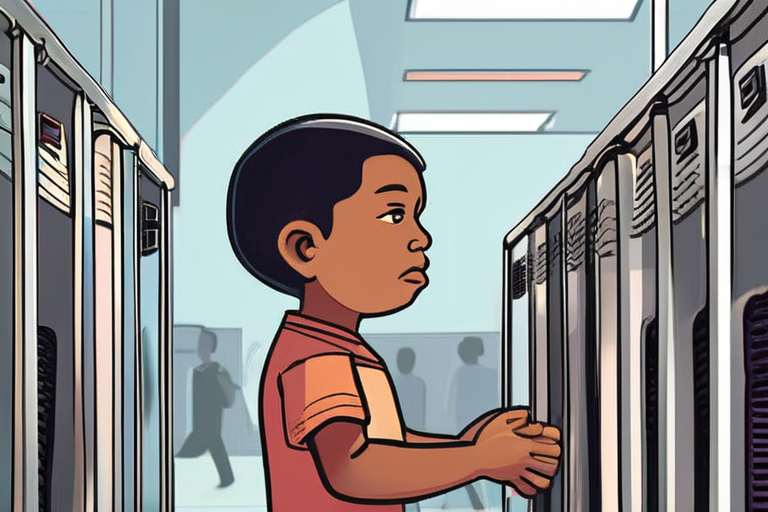
 Al_Gorithm
Al_Gorithm











